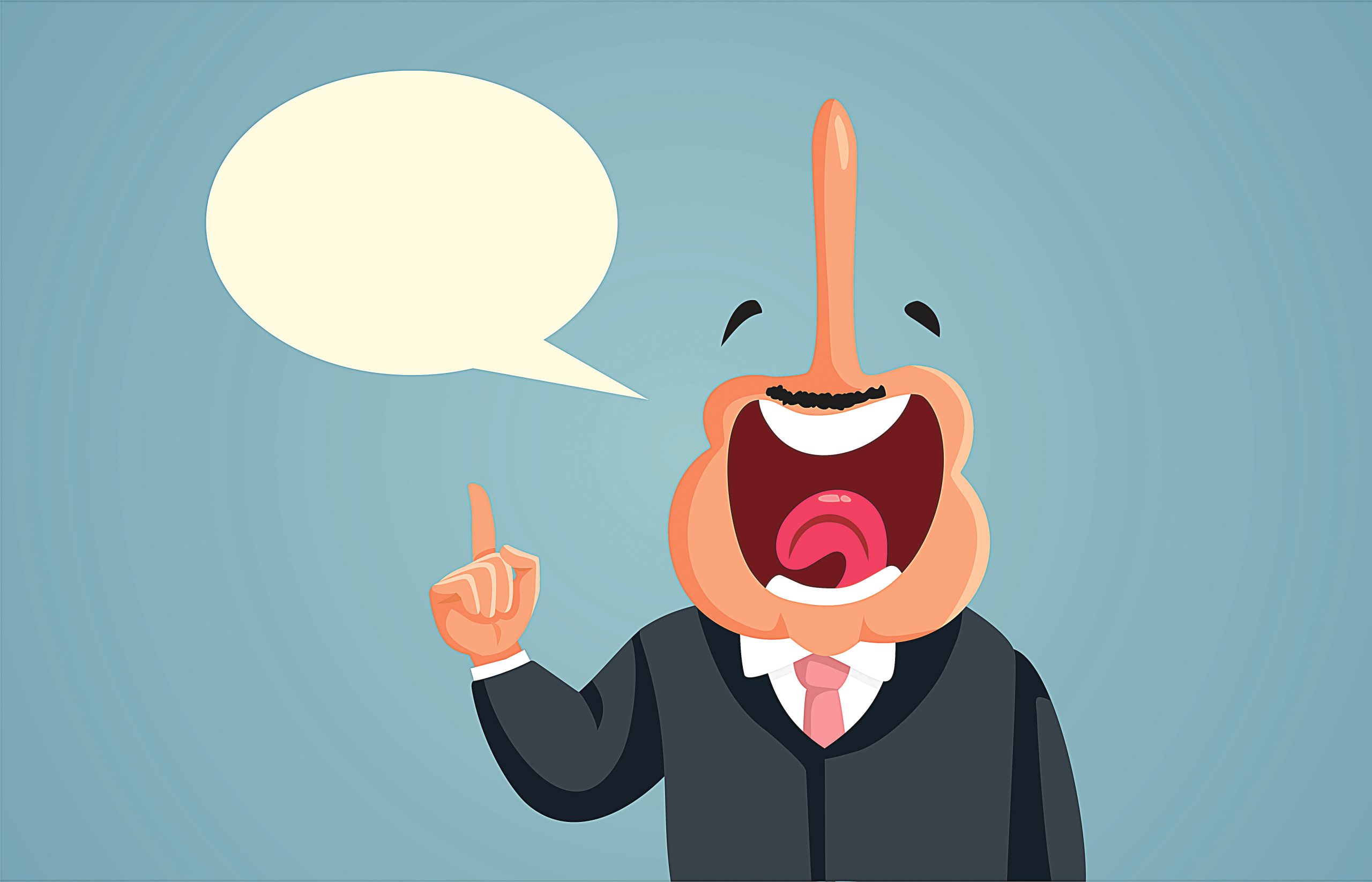Lying may indicate disturbances or psychiatric diseases

The lie can be considered a pathology and has a name: mythomania. This lie may be a symptom or an indicator of some disturbance or psychiatric illness, says psychologist Renata Benavente. « In a disturbance or severe psychiatric disease, such as schizophrenia and, in a context of a psychotic picture, delusions can occur, that is, situations in which the person is convinced of a reality that does not exist, but in his head is real. However, in the eyes of the outside can be interpreted as a lie, » he says.
And he gives examples: « We can watch the delusions of poisoning that are common, as well as ideas of persecution, in which one thinks someone is doing harm or talk about himself. They are symptoms of illness, but can be interpreted by the outside with strangeness and there are quite bizarre things, just like lies. »
On the other hand, the psychologist recognizes that we can also watch behaviors with the most thoughtful intention, in the sense of someone who wants to harm others and who are often related to burla crimes. However, then the intention is clear: « They want to fool someone and know that they are taking advantage of their weaknesses or insecurities to gain advantage, usually a financial advantage and are situations that are very associated with personality disturbances and deviant behaviors. »
According to Renata Benavente, we are facing people who want to enjoy someone’s fragility, knowing that they will take advantage of their benefit and usually have the gap of a fundamental competence of healthy human beings that is empathy. « Most people can put themselves in the other’s shoes and, as such, do not take advantage of the others, » however, who takes advantage of the thought: « » He is not very smart either, he was fooled « as if the responsibility of the victim had been his, » recalling that there are media cases of people who take advantage of emotional insecurities and affective relationships to get advantages of money, sexual favors, etc.
Impact
Most people who lie or deceive are not always critical of their behavior and, therefore, according to the psychologist, tends to neglect the impact on the victims. « Most of the time, only when there are even judicial consequences or when this has an important impact on people’s lives, where there is external pressure to change behavior do they change it. They are, as a rule, very difficult situations to intervene, precisely because there is this absence of criticism, » he reveals to our newspaper.
Already on the victim’s side admits that they are “very difficult” situations to manage because there is a lot of shame. « The person who is involved in a scam, who is deceived by someone else is always ashamed or with feelings of guilt and asks, » How did I not realize it before? There were some signs that I could not read clearly « and, as such, states that » there are many situations that occur that are not even denounced. «
Lies to protect
Renata Benavente acknowledges that “it is uncommon to have people who lie in a compulsive way” and, therefore, considers that the lie is, in most cases, used to gain advantage.
At the same time it recalls that the so -called benevolent lies are also seen, that is, people who lie to protect the fragile. One of the most emblematic cases concerns children. And it gives an example: « It is common for mothers to omit their children that the father is stuck because it is difficult to explain that that person had a delinquent behavior and has been sanctioned for it. In these cases, they often use the justification that their father is working abroad, but they are lies that are used on the benevolent side. The same is true if we have been talking about serious illness. »
A scenario that, according to it, is repeated in the elderly, in the sense of protection.
Still, the psychologist recognizes that it is not always the best way. « Sometimes we are even incurring errors when trying to do this excessive protection because there are certain truths that have to be assumed because they are part of growth, » he says.
Conspiracy theories
Another headache refers to conspiracy theories that are misinformation content released by some people or groups to explain certain events. “These theories are tendentially based on disconnected pieces of information rather than solid facts,” says the Guide to the Order of Psychologists to help combat disinformation (see beside column).
He adds: « The appealing side of these theories is that they offer simple explanations for phenomena that are mostly random or very complex. We can believe in conspiracy theories because they give us a greater sense of control, make us feel safe and show that the community we identify is right. »
What are the reasons for someone to spread misinformation
Joke
• To make humor from information. For example, a person who sees an image of a giant dragon -shaped croissant created by artificial intelligence and sharing by joke.
For believing in it
• Eventually spreading erroneous information. For example, a person who, after listening and believed in the theories that connected 5G to coronaviruses, shares this information on their social networks.
In order to deceive people
• For example, a person who is part of a misinformation agency and deliberately creates false news that aims to take others to think of a certain form or cause revolt, division and fear.
For political and ideological purposes
• Disinformation can be used as a strategic tool for shaping narratives and influencing elections, feeding polarization or undermining
confidence in institutions.
In order to make money
• For example, when we click ads and videos with sensational images and titles we are very likely to generate money for the people who created them.
Impact
• Believing and sharing misinformation has multiple consequences. Information with a manipulative or false purpose conditioning our perception of the world, the way we think and behave, and also the choices we make
which, by repeated exposure, can become gradually harder to correct.
• Disinformation and polarization are two faces of the same coin. Polarization makes us believe more in misinformation and misinformation content make us have polarized and polarizing attitudes and behaviors. Thus, polarization and misinformation reinforce each other.







